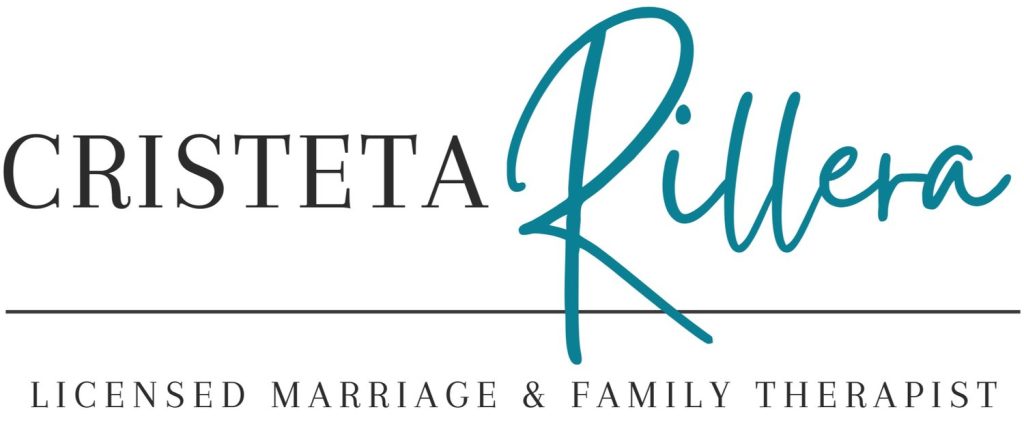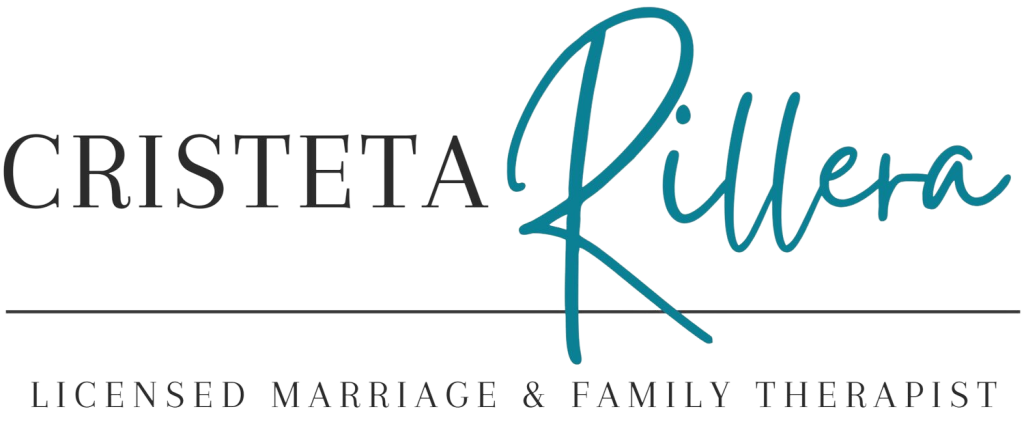Understanding Trauma and Its Effects
Trauma is an emotional response to a deeply distressing or disturbing event. Trauma can stem from shocking events like natural catastrophes, maltreatment or assault, armed conflict, and terrorism, or it may be caused by long-term exposure to traumatic conditions such as destitution, negligence, intimidation, and domestic violence. Trauma can have a profound impact on individuals, both mentally and physically.
The repercussions of distress can endure for extended periods, significantly influencing how people engage with their environment. Common signs to look out for include flashbacks, intrusive thoughts, hypervigilance, difficulty sleeping or concentrating due to racing thoughts, irritability, or anger outbursts due to feeling overwhelmed by emotions related to the trauma. Symptoms of trauma can lead to feelings of emotional detachment, thus impacting the sufferer’s connections with others. Without aid, neglected trauma can evolve into more serious mental health issues such as PTSD.

If left untreated, trauma can result in the development of severe mental health issues such as depression and PTSD. PTSD is identified by recurrent reliving of the traumatic event via nightmares, flashbacks, or intrusive memories; avoiding trauma reminders; altered beliefs & feelings; increased arousal & reactivity (e.g., elevated heart rate and jumpiness); plus amplified levels of anxiety that impact day-to-day activities.
While everyone experiences grief differently after a traumatic experience, many evidence-based treatments are available for those seeking help managing these difficult emotions. Treatments like CBT, DBT, EMDR, psychodynamic approaches, group therapy, and digital support networks are all evidence-based strategies that can be used to help manage the emotional pain of a traumatic experience. With proper treatment, most people find relief from their distress, allowing them to return to life without being held back by fear stemming from past traumas.
Trauma can have a lasting impact on an individual’s life, and understanding its effects is essential for developing effective treatment plans. Knowledge of the advantages of therapeutic approaches for dealing with trauma can help us make beneficial modifications in our lives and discover respite from hard feelings.
Benefits of Therapy for Trauma
Trauma therapy can offer various benefits to individuals struggling with the effects of unresolved trauma. The chief aim is to reduce or do away with indications and help people regain control over their lives. Through therapy, individuals learn coping skills to manage emotions more effectively and connect with others meaningfully.
Trauma therapy can be advantageous, providing a soothing effect to the nervous system that brings tranquility and serenity. By addressing the anxieties and pressures of life, people can concentrate on what is essential – leading a contented existence without fear or concern about disrupting it. Additionally, by addressing communication issues caused by unresolved traumas, relationships can be improved and strengthened through increased understanding between partners.

Trauma therapy also helps people identify triggers that make them feel overwhelmed or out of control when faced with certain situations or memories of past experiences. By recognizing these triggers early on, they can take steps towards avoiding them altogether while learning how to cope if they do encounter them unexpectedly in day-to-day life activities. This awareness can provide an added layer of protection from further emotional distress down the road and create an opportunity for growth through self-reflection and insight gained from each session attended throughout the treatment process.
The Benefits of Therapy for Trauma are invaluable, as it can help individuals process their experiences and move forward more healthily. Cristeta Rillera’s Approach to Trauma Counseling is an evidence-based method that utilizes the latest tools and techniques to ensure clients feel supported, empowered, and confident in making positive changes.
My Approach to Trauma Counseling
I am an LMFT who specializes in trauma counseling. I utilize evidence-based models such as Eye Movement Desensitization Reprocessing (EMDR) Therapy to help my clients process and heal from traumatic experiences. My approach focuses on assisting individuals in reconnecting with themselves and others through improved communication skills and calming their nervous systems with relaxation techniques like deep breathing exercises and mindfulness practices.
Through EMDR therapy, I help my clients identify triggers that cause distress or fear and then work together to develop a plan for how they can manage these triggers in the future. I also teach my clients grounding techniques to stay present when faced with overwhelming emotions and cognitive restructuring methods to challenge negative thought patterns contributing to anxiety or depression symptoms.

In addition, I encourage my clients to practice self-care by engaging in activities that bring them joy, such as yoga, meditation, art therapy, or journaling – all of which have been proven effective tools for managing stress levels and increasing overall well-being. Lastly, I provide support throughout the healing journey so that each individual feels safe enough to express themselves authentically without judgment or criticism from others.
My approach to trauma counseling is compassionate and understanding as I strive to help my clients find peace. By offering various services, such as anxiety therapy, stress management techniques, and relationship counseling, I can provide the tools needed for individuals to overcome their traumas.
Sacramento Trauma Counseling Services Offered
I am a licensed marriage and family therapist in Sacramento specializing in trauma counseling. I aid those impacted by trauma, such as anxiety treatment, methods of stress control, and counseling for couples.
Anxiety therapy focuses on helping clients identify their triggers for fear or panic attacks and learn how to manage them more effectively. I employ proven techniques such as CBT and DBT to help my clients comprehend their ideas, which may lead to their nervousness. I help my clients build the skills to effectively manage their anxieties when confronted with challenging situations or strong emotions.
Stress management techniques also form an important part of my practice. These include mindfulness practices such as deep breathing exercises, progressive muscle relaxation, visualization techniques, guided meditation audio recordings, journaling activities, and more. With these skills, my clients become better equipped to deal with stressful life events without feeling overwhelmed or helpless.

Relationship counseling is especially beneficial for couples who have experienced trauma together or separately from one another due to past traumas affecting current dynamics between partners. I help couples build stronger communication skills while better understanding each other’s feelings to work through any issues they may have together rather than apart. My approach encourages empathy toward each partner’s individual needs while working towards rebuilding trust within the relationship itself, making it possible for both parties involved to find peace again, even after experiencing significant pain before seeking help from her expertise.
The Sacramento trauma counseling services I offer provide individuals with the necessary tools and support to overcome debilitating fear.
PTSD and Its Effects on Individuals
PTSD is a debilitating psychological condition that can emerge after an individual has gone through or seen traumatic events. Anyone can develop PTSD, but military veterans exposed to combat are more likely than most people, especially women, who face higher risks than men overall when it comes down specifically just developing post-traumatic stress disorder. Those with PTSD may experience flashbacks and nightmares of the event and intrusive thoughts about the trauma, which can lead to fear, guilt, shame, and depression. They may likewise battle hyperarousal manifestations, such as touchiness, difficulty centering, and rest unsettling influences.
Individuals with PTSD can struggle to regulate their emotions, leading them to adopt unhealthy habits like substance misuse or lashing out. It’s important for individuals suffering from PTSD to seek help early on, so they don’t become further entrenched in these negative coping mechanisms. By engaging in trauma therapy, individuals with PTSD can gain the tools to effectively process their traumas and develop healthy strategies for managing emotions.

By utilizing CBT, individuals with PTSD can identify and substitute their harmful thought patterns while learning to cope better with difficult situations. Additionally, Exposure Therapy is frequently used to treat PTSD by gradually introducing clients to memories related to the traumatic event until they no longer provoke an emotional response or fear reaction. This technique allows people to confront their fears head-on while mastering techniques for managing any associated distress over time. By utilizing these approaches, those afflicted with PTSD can start to restore their lives without being hampered by its consequences.
PTSD can have a devastating effect on individuals, leading to feelings of fear and helplessness. Kids can benefit from trauma therapy, which aids in developing techniques to deal with the distress caused by their experiences.
Trauma Therapy for Children
Providing trauma therapy to children is essential for aiding their recovery from traumatic experiences and preventing long-term psychological damage. Traumatic events can cause long-term psychological damage and interfere with a child’s ability to function in their everyday life. Therefore, trauma therapy must be provided as soon as possible after the event has occurred.
Coping strategies for children are key components of effective trauma therapy. These strategies can help a child manage their emotions, reduce stress levels, and regain control over their lives. Examples of coping strategies include deep breathing exercises, visualization techniques, journaling, or talking about feelings with trusted adults or peers. It is vital to ensure that the kid has access to suitable backing frameworks, for example, relatives or companions who comprehend their circumstances and can offer passionate help when required.

Play therapy techniques are particularly beneficial in treating childhood trauma because they allow children to express themselves without having to talk directly about the experience itself. Play activities like drawing pictures, creating stories, or playing pretend games provide opportunities for self-expression while allowing the therapist to observe how the child interacts with different objects and situations, which may indicate underlying issues related to the traumatic event(s). By utilizing play therapy, practitioners can assist a child in forming beneficial ways of handling future pressure-filled experiences.
Trauma therapy for kids can be a hugely beneficial aid in assisting them to comprehend their sentiments and form advantageous coping methods. With the right resources, trauma survivors of all ages can find healing through individual or group counseling sessions and online support groups.
Resources Available for Trauma Survivors
For those who have endured trauma, there are numerous options for managing the associated symptoms and stimuli. For those who have experienced trauma, individual therapy can be a great way to explore the root causes of their issues and develop better communication skills with the help of a therapist. At the same time, group counseling sessions and online support groups provide further support. Group counseling sessions can also be beneficial as they support peers going through similar experiences while allowing individuals to gain insight into how others cope with trauma. Lastly, online support groups offer an additional layer of anonymity that some may find more comfortable than traditional therapy settings.
Individual therapies may involve CBT, DBT, EMDR, or other scientifically-proven approaches to address trauma. These therapies focus on helping individuals identify underlying patterns or beliefs that contribute to anxiety or depression stemming from the experience of trauma so they can create new ways of thinking about themselves and their environment. Additionally, individualized treatment plans allow therapists to tailor treatment goals according to each person’s unique needs and circumstances, which helps ensure long-term success in managing post-traumatic stress disorder (PTSD).

Group counseling sessions provide survivors of trauma with an avenue to connect with others who have walked a similar path while learning practical tools such as relaxation techniques or mindfulness practices in a secure environment under the tutelage of a qualified counselor or therapist. In this setting, members can reap the rewards of sharing their stories and benefit from having accountability when it comes time to put into practice what was discussed during meetings in their daily lives outside group sessions.
Online support groups provide an anonymous platform where people can discuss complex topics without fear of judgment or stigma associated with seeking face-to-face help due to a lack of cultural acceptance within specific communities when talking about mental health concerns openly. Online forums are often moderated by professionals who understand the complexities surrounding PTSD and offer tips on how best to handle various situations related directly back to living life after experiencing a traumatic event.
FAQs in Relation to Sacramento Trauma Counseling
Cognitive Behavioral Therapy (CBT) is the best counseling for trauma. CBT helps individuals identify and challenge unhelpful thoughts and behaviors that are causing distress while also teaching coping strategies to manage difficult emotions. CBT encourages individuals to recognize and confront negative thought patterns and behaviors that are causing pain while educating them on techniques for dealing with difficult emotions. Research has shown that CBT can effectively reduce post-traumatic stress disorder symptoms and improve overall functioning.
- Complex trauma: This type of trauma is caused by prolonged exposure to highly stressful or traumatic events, such as abuse, neglect, and/or abandonment. It can also be caused by living in an environment where violence is common.
- Acute trauma: This type of trauma occurs when a person experiences a single event that causes intense fear and shock, such as a physical assault or natural disaster.
- Developmental Trauma: Also known as attachment-based trauma, this kind of psychological injury typically occurs during childhood due to ongoing neglect or abuse from primary caregivers, resulting in lasting emotional damage into adulthood.
CBT focuses on understanding how thoughts, feelings, and behaviors are connected and helps individuals identify maladaptive thought patterns contributing to their distress. It also teaches coping skills such as problem-solving, relaxation techniques, and assertiveness training to help individuals manage their symptoms more effectively. CBT can be supplemented with other therapeutic approaches, like psychodynamic or interpersonal therapy, to target the source of trauma-related distress.
Trauma therapy is an effective treatment that can help individuals process and heal from difficult experiences. Therapy provides an environment of acceptance and understanding, enabling individuals to analyze their feelings and acquire strategies for managing them. Combining therapy with other evidence-based therapies, such as cognitive behavioral therapy or dialectical behavior therapy, can further enhance the effectiveness of trauma treatment. Individuals can better understand their emotions and develop the skills necessary to live healthier lives by engaging in therapy.
Conclusion
Sacramento trauma counseling can be a potent means of aiding individuals and families in recovering from distressing experiences. I am an experienced marriage and family therapist specializing in evidence-based treatments such as EMDR Therapy, which has been proven to reduce or eliminate symptoms of PTSD. With my assistance, those seeking help can gain the ability to rebuild relationships and find serenity. If you are looking for Sacramento Trauma Counseling services, don’t hesitate to get in touch with me today.










